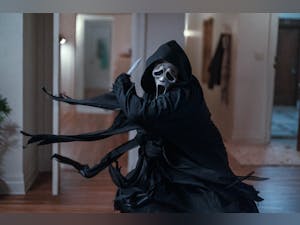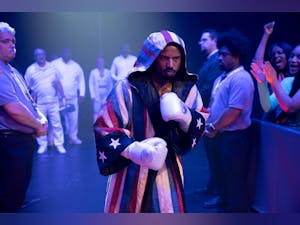From: Silver Screen
'Rebel in the Rye' misses capturing J.D. Salinger

The latest shows and movies coming to a screen near you.
Director Danny Strong offers a tepid biopic riff on the 2013 documentary Salinger in “Rebel in the Rye.” The film explores the 1950s, around Salinger’s writing of “The Catcher in the Rye,” whose place in the pantheon of great American novels is indelible. Holden Caulfield, the novel’s protagonist, gave a voice to the disaffection and confusion of modern living and his condemnation of all things fake rendered the book timeless and dearly loved.
The main issue with “Rebel in the Rye” is that it expects us to take its word for how rebellious and revolutionary J.D. Salinger was, and it certainly fails to make the audience get a sense of that. Nicholas Hoult portrays Salinger as a handsome, brash, sardonic and outspoken young man. Salinger’s strong-headedness, perhaps even arrogance as it is portrayed in the film, is incredibly difficult to reconcile with Salinger’s later turn to reclusion, when he eschewed publishing and public appearances to live in a house in the woods in Cornish, New Hampshire. “Rebel in the Rye” also falls short in its portrayal of the effect WWII had on Salinger. His stint “in the nuthouse” is only hinted at, with a repeated image of Salinger’s hand shaking as he tries to put words to paper. We don’t find out that Salinger voluntarily enlisted in the war. The film portrays D-Day only briefly, and we don’t quite get a sense of the atrocities he lived through in France during the war─a place called the “meat grinder,” where 200 men would routinely die in the span of a couple of hours. Witnessing the utter desecration of humanity in camps abandoned by the Nazis left lasting scars on Salinger’s mind, and the film eloquently portrays that with a flashback of outstretched, skeletal hands grasping for bread through barbed wires.
Some of the greatest moments in the film come from the interaction between a young Salinger and his Columbia University creative writing mentor Whit Burnett (Kevin Spacey). Spacey’s “Dead Poets Society”-esque performance certainly carries the film. The poignancy of Salinger’s turn away from Burnett, who publishes Salinger’s very first story, is made palpable. So is the magic of writing, of which Burnett comments, “There is nothing more sacred than a story.”
“Rebel in the Rye” is captivating in that Salinger himself is an enigmatic, enthralling figure, but the film seems to suffer from trying to cover too much ground and fails in its broad strokes approach. If Holden Caulfield really saved Salinger’s life, as the film suggests, we get only a tenuous sense of how this happened.
Grade: B




